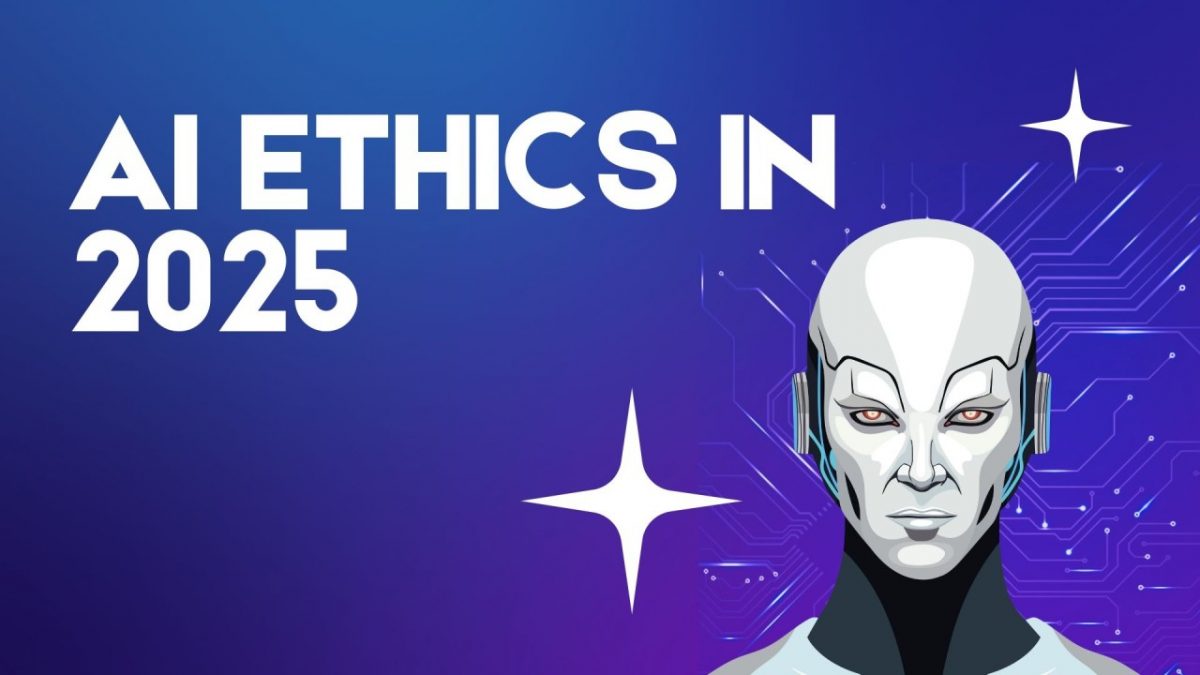AI is growing fast, but so are the risks. Learn why AI safety and ethical development matter more than ever in 2025 and what every developer should know to build responsibly.
Artificial Intelligence is everywhere from the apps we use daily to the systems making life-or-death decisions in healthcare and autonomous driving. But with great power comes great responsibility. In 2025, developers are not only creators of intelligent systems , they’re also the gatekeepers of ethical tech.
Ignoring AI safety and ethics can result in harmful consequences like biased decisions, data misuse, or even dangerous system behavior. That’s why ethical design isn’t just a nice-to-have anymore, it’s a core requirement for building AI responsibly in today’s fast-paced digital world.
What Is AI Safety and Why Does It Matter?
AI safety is about making sure that artificial intelligence behaves as intended safely, predictably, and without causing harm. This includes:
- Preventing unintended behavior
- Minimizing harm to humans and society
- Building systems that align with human values
Whether it’s a chatbot, recommendation engine, or autonomous vehicle, safety in AI ensures that systems do not spiral out of control or act on flawed logic.
Example: Imagine an AI that helps doctors recommend treatments but was trained on biased data. The results could reinforce healthcare inequality and cause real harm.
What Are AI Ethics?
AI ethics refers to the values, principles, and practices that guide the development and use of artificial intelligence. It’s about building fair, transparent, and accountable systems.
Key ethical concerns include:
- Bias and discrimination
- Privacy and surveillance
- Transparency and exploitability
- Accountability for harm
Ethical AI development ensures trust without it, users will abandon systems that feel intrusive, biased, or untrustworthy.
Why It’s a Big Deal in 2025
In 2025, AI is no longer experimental; it’s powering real-world decisions. And the risks are bigger than ever:
- Deep fake abuse is harder to detect
- AI-generated misinformation spreads faster
- Autonomous systems are being trusted with real lives
- Data collection is more invasive
Governments and tech leaders are tightening regulations, and users are demanding transparency. If developers ignore safety and ethics, they not only risk failure they could face legal and public backlash.
What Developers Must Know and Do in 2025
Here are the core responsibilities for developers working with AI this year:
1. Start with Diverse and Clean Training Data
Avoid bias by training models on balanced datasets. Understand your data sources and consider representation across race, gender, region, and more.
2. Prioritize Transparency
Make your AI’s decision-making process explainable. Tools like SHAP and LIME help developers show users why an algorithm gave a specific result.
3. Use Ethical Frameworks
Follow frameworks like:
- Google’s AI Principles
- OECD AI Guidelines
- EU AI Act compliance rules
These help you bake ethics into the development life cycle.
4. Design for Privacy
Follow the principles of privacy by design. Use encryption, anonymization, and allow users to control their data.
5. Test for Safety and Bias Regularly
Run audits, simulate worst-case scenarios, and perform bias detection at each phase of your model deployment.
6. Be Transparent with Users
Clearly state what your AI does, how it collects data, and how it makes decisions. Ethical design builds user trust and brand loyalty.
Developers aren’t just coders, they’re architects of systems that affect millions of lives. That means making ethical decisions early in the development process:
- Ask: Who could be harmed by this model?
- Ask: What happens if the model fails?
- Ask: Are all user groups treated fairly?
Ethical AI is Smart AI
As AI continues to shape our world in 2025, ethics and safety are not optional they’re essential. Building AI responsibly means creating technology that respects human dignity, promotes fairness, and minimizes risk.
If you’re a developer, designer, or decision-maker in tech, remember: building fast is great, but building safety is greater. Your code isn’t just logic, it’s impact.
Because in 2025, users, governments, and society expect AI to be not only intelligent but ethical, transparent, and safe.
Popular AI Tools for Ethical Development in 2025
Apsara Madhushani
8 articles
